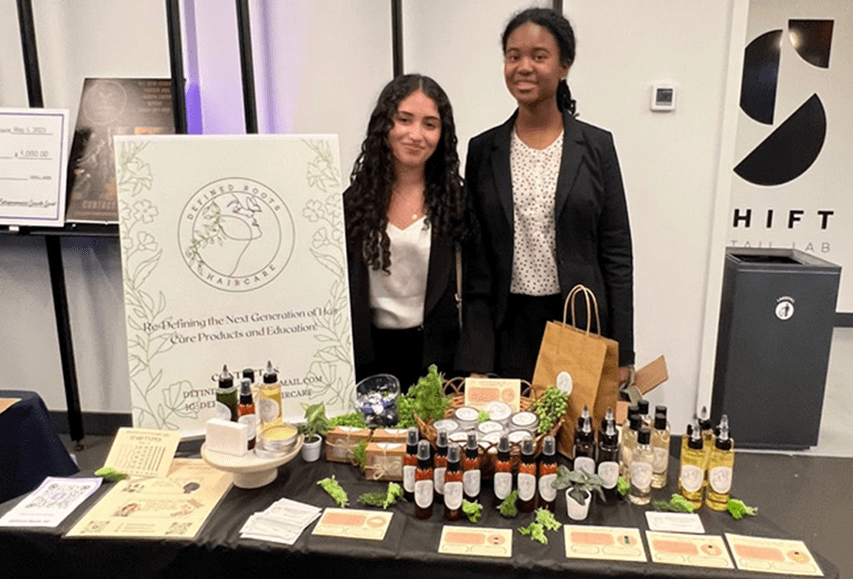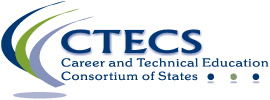Menu
- Economic Empowerment Project
- Entrepreneurship Certification Examination
- Ordering, Testing & Support
- Purchase/Order Exam
- Personal Finance Certification Examination
- Entrepreneurship Institute--Middle/Secondary
- Entrepreneurship Institute--Adult Ed
- Personal Finance Institute--Middle/Secondary
- Personal Finance Institute--Adult Ed
- Contact




Online Entrepreneurship Institute
for Middle School and High School Teachers
Part A: Entrepreneurial Mindset
Feb 3 – Mar 7, 2025
25 Hours of Professional Development (5 Weeks)
5 Zoom Classes
Thursdays 7:00-9:00pm ET
Feb 6, 13, 20, 27, Mar 6
PART A TOPICS
Types of Entrepreneurship
Workplace Intrapreneurship
Entrepreneurial Mindset
Entrepreneur Self-Assessment
Problem-Solving & Research
Entrepreneurial Pathways
Business Opportunity Recognition
Innovation & Design Thinking
Lean Canvas
Lean Startup
Part B: Business Plan
Mar 17 – May 2, 2025
30 Hours of Professional Development (5 Weeks)
5 Zoom Classes
Thursdays 7:00-9:00pm ET
Mar 20, 27, Apr 3, 10, 29
PART B TOPICS
Business Plan
Competitive Analysis
Marketing & Branding
Operations & Resources
Management & Networking
Start-up Costs & Funding Sources
Accounting & Financial Statements
Business Structures & Taxes
Risk Mitigation
Elevator Pitch
Mar 10-14 and Apr 14-25 BREAKS
Class recordings are available.
Using experiential learning theory and a free field-tested curriculum,
middle and high school teachers simultaneously learn entrepreneurship content and instructional best-practices by reviewing classroom-ready resources and completing Institute assignments that they can turnaround and use with their students with
little to no further preparation.
Certified Entrepreneurship
Educator Credential,
Certificate of Completion
& Digital Badge included
400+ Free, online resources
for teaching entrepreneurship:
articles, videos, podcasts,
lessons, textbook, PPT, etc.
Real-world context
for teaching CTE courses
and career pathways
while developing workplace readiness skills
Zoom breakout groups
for national networking,
collaboration,
resource sharing, and lesson planning
Prepare students for the new Innovation & Gig Economy!
The Innovation and Gig Economy requires students to graduate with an entrepreneurial mindset (opportunity recognition, critical thinking, problem-solving, creativity, innovation, initiative, collaboration, etc.) even if they do not start their own business. 40% of Americans have a side hustle and nearly 50% of today’s youth say they intend to start their own business someday. Entrepreneurial skills are an increasingly essential part of workforce development and overlap with the workplace readiness skills employers say they want in new hires in a rapidly changing workplace. Communities also thrive when its members are empowered to become change agents by offering business-centered solutions to unmet community needs.
Moreover, entrepreneurial skills are transferable life skills that are real game-changers for disenfranchised youth living in impoverished areas because they develop intrinsic motivation, growth mindset, resourcefulness, adaptability, resiliency, calculated risk-taking, and agency—to name a few. Even starting simple side hustles requiring minimal start-up costs to earn additional income offers freedom, hope, and empowerment via more personally fulfilling careers while capitalizing on and affirming existing skills and talents.
Highly adaptable and multidisciplinary, entrepreneurship knowledge, skills, and mindsets seamlessly integrate across grades, core academic subjects, and CTE courses so students have the option to own their own business in any career pathway. These skills are also correlated to higher rates of college enrollment, higher earnings, and job satisfaction. Additionally, using entrepreneurship as a real-world instructional context optimizes student engagement and motivation by unleashing students’ potential to pursue their own unique interests, hobbies, and passions in the classroom.
Using experiential learning and a field-tested curriculum, Institute participants simultaneously learn basic entrepreneurship content and instructional best-practices by reviewing classroom-ready resources (news articles, videos, podcasts, infographics, textbooks, lessons, PPT slides, test bank, etc.) and completing assignments that they can turnaround and use with their students with little to no further preparation. Easily customizable, the Institute content is extremely flexible and accessible to middle and high school students using inquiry, performance, and project-based learning objectives. Online modules are self-paced and live Zoom classes feature introductions to supportive community partners, grassroots adult and high school student entrepreneurs who share “lessons learned,” and breakout groups for national networking, collaboration, resource sharing, and lesson planning. Practical module assignments result in a collection of co-created lessons (Part A) and a business plan first draft (Part B) to inspire creative strategies for high quality education and self/employment outcomes.
Entrepreneurship Educator Certification, Curriculum, Certificate of Completion, and Digital Badge included.
NOTE: This Institute is aligned with the U.S. Entrepreneurship Certification Examination, equipping teachers with the content knowledge, instructional strategies, curriculum, and resources that they need to prepare high school students to pass the exam. Details and the free Exam Manual linked here.
Registration is Now Open!
$550
for both PARTS A & B
$275 for Part A or Part B
55 Hours of Professional Development
Or optional 3-hours of undergraduate or graduate university credit available
HIGH SCHOOL STUDENT ENTREPRENEUR SPOTLIGHTS
And Institute Guest Speakers

Madeline Petru, Owner, Petru Plushies, Independence High School, Loudoun County Public Schools
Watch her video

Melissa Alarcon and Maya Tinsley, Co-CEOs, Defined Roots Haircare, Meadowbrook Entrepreneurship Academy, Chesterfield County Public Schools
Watch their video
ACTE WEBINAR
In case you missed it, check out this ACTE webinar on the
“Top 10 Reasons to Integrate Entrepreneurship Across CTE Courses & Career Pathways “
by Dr. Cheryl Ayers.
